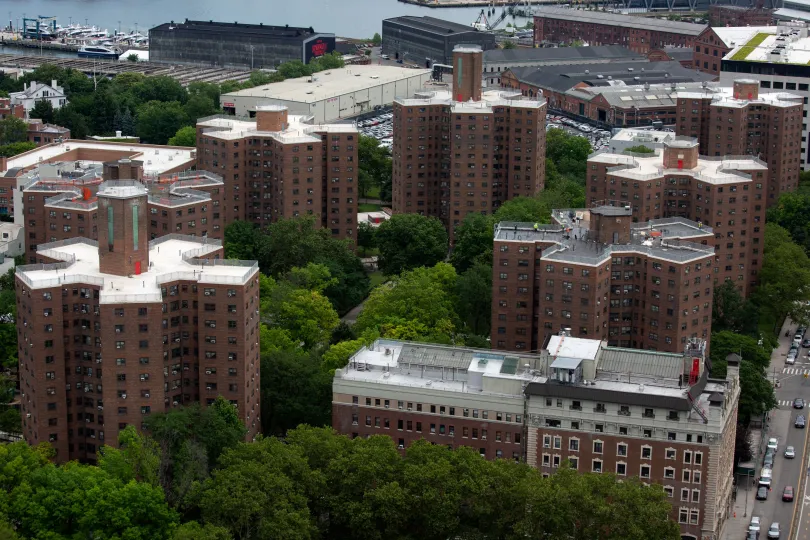NYCHA Rent Bailout Proposed for State Budget, With $466 Million Owed
Albany lawmakers look to open the Emergency Rental Assistance Program to public housing statewide, as NYC’s ailing housing authority raids savings and halts repairs.

The Farragut Houses in Brooklyn, June 14, 2022. | Ben Fractenberg/THE CITY
 This article was originally published on by THE CITY
This article was originally published on by THE CITY
Albany lawmakers are looking to throw NYCHA a lifeline this week, proposing to add millions of dollars to the state budget to give public housing tenants the same financial aid struggling private-sector renters got during the pandemic.
Under its version of the federally supported Emergency Rental Assistance Program (ERAP), the state paid off millions of dollars in rent arrears for private-sector tenants who stopped paying their rent during the COVID crisis.